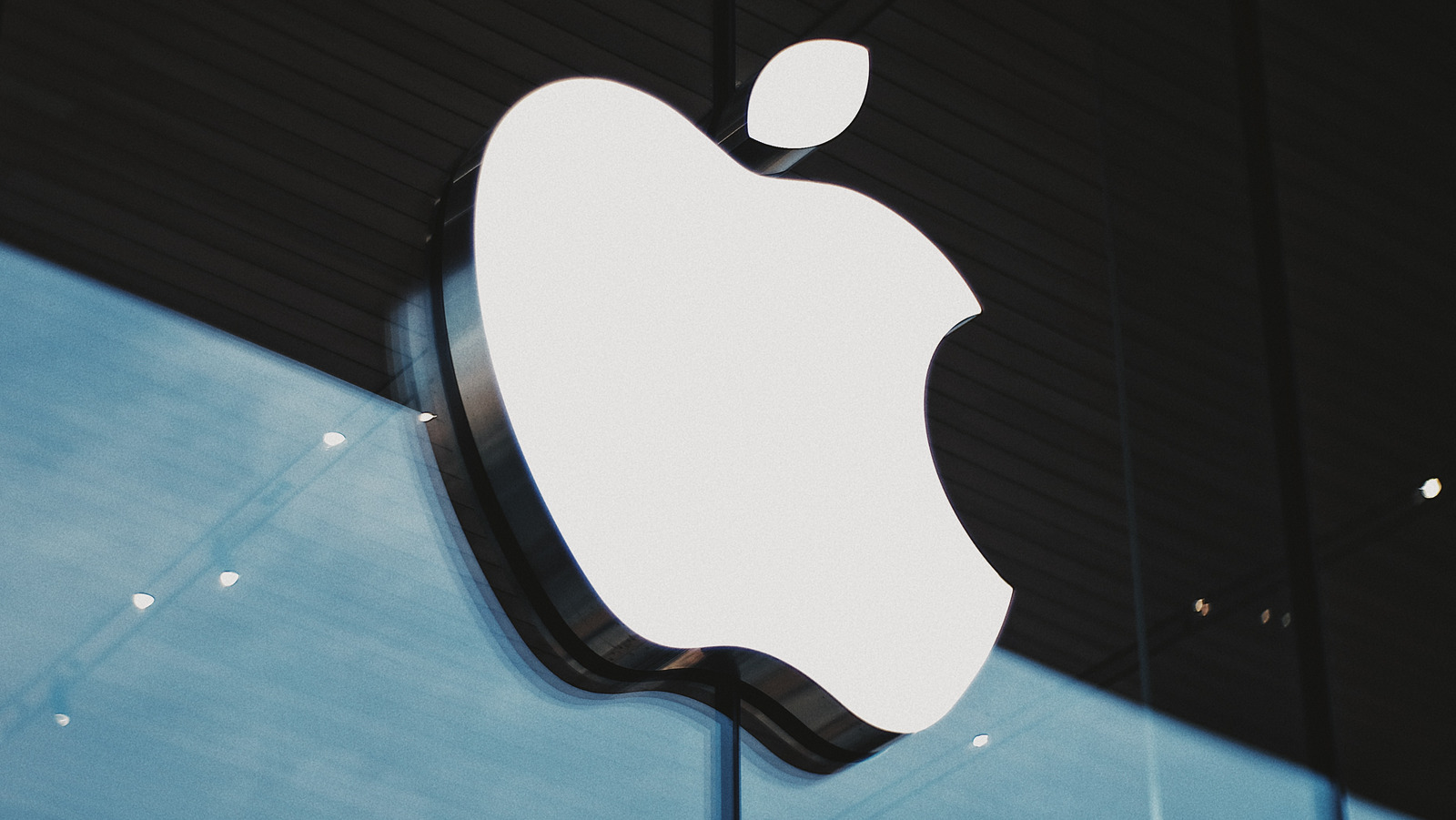Cryptocurrency
Apple is developing its own Metaverse Apple – Media

Apple is developing its own version of Metaverse Apple, although it plans to distance itself from the term. Bloomberg writes about it, referring to recent vacancies at the corporation.
It is reported that the California-based computer and software developer is looking for a mixed 3D reality developer. The successful candidate will work on creating a framework to enable interaction in a three-dimensional mixed reality world, the publication writes.
According to rumors, Apple’s augmented reality helmet will get a M2 processor (installed in Apple’s MacBook Air notebooks) and a dozen cameras to track movement in space. The estimated price of the new items could be ~ $3,000, and its release is projected in I quarter of 2023.
We shouldn’t wait for the official announcement of Apple’s Metaverse. At least in an interview with The Wall Street Journal, Apple vice president of marketing Greg Joswiak previously said he would never use the word “Metaverse.” But in the future, we may even have an Apple Metaverse token waiting for us.
In early October, Apple CEO Tim Cook said that the concept of Metaverses is still in its infancy because few people can explain the meaning of the technology. In his opinion, an average Internet user can’t yet understand what Metaverse means.
Cook stressed that, despite the potential of virtual reality, it is hardly a good way to “live life.” He acknowledged that the technology can be used to its advantage, but so far he does not believe that it can replace “good communication”.
The head of Apple is not the only one who believes that Metaverses at the current level are overvalued. For example, Raja Koduri, senior vice president of architecture, graphics and software at Intel, also doubts that there will be a worthwhile Metaverse soon.
According to him, to implement the concept, the computing power of computers must be increased a thousandfold. Current performance is simply “not enough to realize this vision,” Koduri noted. However, he admitted that Metaverse could be the next big computing architecture after the Internet.
Earlier, we reported that kucoin denied rumors of its insolvency.
Cryptocurrency
Analyst: Skip Bitcoin FOMO, Altcoins Offer Better Gains Now

Bitcoin (BTC) has sent the crypto community into delirium, hitting a new all-time high (ATH) of almost $119,000 after brief stops around $113,000 and $116,000.
However, despite the excitement, prominent analyst CrediBULL Crypto has cautioned traders not to chase the rally blindly, suggesting that the real opportunity lies in altcoins, not Bitcoin.
Why BTC FOMO Could Be Costly
With BTC currently over 650% above its ideal accumulation zone, CrediBULL posted a stark warning on X:
“The big opportunity for gains is on ALTS even if Bitcoin is the one that is ‘leading’ this move.”
He added that anyone buying the asset at this particular point should only do so for an active trade with a clear setup.
“If you can’t identify a trade setup then there is no reason to buy Bitcoin at these levels as there are much better opportunities in alts from a R/R perspective at current levels.”
His comments echoed a broader sentiment emerging from key market voices, including former BitMEX CEO Arthur Hayes and YouTuber Crypto Rover, who likened the current market cycle to November 2024, when a major altcoin rally followed Bitcoin’s price surge.
In a recent tweet, Hayes said he had reversed his previously bearish stance, citing Bitcoin’s strong breakout and the rising dominance of Ethereum (ETH).
“Get ready for a monster alt szn,” he wrote, signaling increased institutional confidence. The crypto entrepreneur also reported that his Maelstrom Fund is ramping up altcoin exposure amid expectations of favorable political and macroeconomic shifts.
Observers have described the flagship cryptocurrency’s latest move as structurally different from past bull cycles. According to CryptoQuant, it isn’t driven by speculative angst, but rather by strategic accumulation and restrained selling activity.
Additionally, metrics like the MVRV ratio, currently 2.2 vs. over 2.7 in previous tops, SOPR, and MPI all hint at a sustainable rally with long-term potential. The drop in exchange balances, down over 21% in four months, also suggests that holders are in no rush to exit their positions.
Altcoins on the Mend
However, even with BTC in price discovery mode, Ethereum and several other altcoins are beginning to outshine it in percentage gains. ETH, for instance, is up by more than 18% in the last seven days, beating Bitcoin’s 8.9% rise in the same period. It has also reclaimed the $3,000 level and is setting its sights on $3,350–$3,500.
Meanwhile, Cardano (ADA) has pumped 23.7% across the week, reclaiming critical support at $0.64 and eyeing a return to $1. Hyperliquid (HYPE) is up nearly 19%, having set a new all-time high at $46.25, and is now targeting the $50 psychological threshold.
Even Solana (SOL) is catching a bid, with prices climbing above $164 and showing potential for a rally beyond $180.
Binance Free $600 (CryptoPotato Exclusive): Use this link to register a new account and receive $600 exclusive welcome offer on Binance (full details).
LIMITED OFFER for CryptoPotato readers at Bybit: Use this link to register and open a $500 FREE position on any coin!
Cryptocurrency
XRP Breaks Free With Double-Digit Gains — Flips USDT in Market Shake-Up

TL;DR
- The consolidation phase for many altcoins, including XRP, seems to be over, and Ripple’s native token is on the run again toward $3.
- On its way up, it managed to surpass USDT in terms of market cap and is now back in the third spot after months of hiatus.
The graph above clearly demonstrates the price stagnation XRP had to endure for the past month or so. Its upper boundary was at around $2.6, while it also tested the lower one at $1.9 during the darkest hours of the war between Israel and Iran.
Nevertheless, each attempt met immediate rejections, and the cryptocurrency was pushed south to a tight range between $2.2 and $2.3. However, there were multiple signs that the consolidation could be coming to an end, and one analyst even warned that most traders will miss the breakout.
Such a price surge indeed started to materialize in the past few days, and especially today. XRP has been among the top performers on a daily scale, having surged by 20% at one point and coming close to $3 on most exchanges.
Although it was stopped there and now sits just under $2.8, it’s still up by over 12% since yesterday. Its market cap has spiked above $160 billion for the first time in months, and XRP has now become the third-largest cryptocurrency, by overtaking Tether’s USDT.
The move north was quickly picked up by the XRP Army, many of whom praised the asset’s performance and provided some bullish (and outrageous) predictions.
$XRP at $2,500 isn’t just a dream.
-Because a pump like 2017 would easily clear $2,000 ✅
Fact: The yearly resistance is now free so expect vertical price discovery. pic.twitter.com/A4G3PasuVk
— Crypto Bitlord (@crypto_bitlord7) July 11, 2025
Binance Free $600 (CryptoPotato Exclusive): Use this link to register a new account and receive $600 exclusive welcome offer on Binance (full details).
LIMITED OFFER for CryptoPotato readers at Bybit: Use this link to register and open a $500 FREE position on any coin!
Cryptocurrency
Bitcoin Breaks ATH, Hayes Flips Bullish: ‘Maelstrom Is Backing Up the Truck’

BitMEX co-founder Arthur Hayes has decisively flipped bullish and even announced that Maelstrom Fund is “backing up the truck.” The exec’s comments came as Bitcoin (BTC) broke through its all-time high above $118K on strong volume.
He also revealed that Ethereum (ETH) began to follow with potential outperformance, and markets began pricing in a Trump administration’s readiness to ease trade tensions.
From Bearish to Bullish
This pivot follows Hayes’ prior cautious stance, which was rooted in concerns about a Treasury General Account (TGA) refill draining liquidity.
In his previous essay, Hayes explained that the US Treasury Secretary, whom he calls “The Big Bessent Cock (BBC),” faces an impossible task: funding ballooning deficits without causing a bond market revolt. To manage this, the government is turning to innovative liquidity engineering, including stablecoin adoption by “too big to fail” (TBTF) banks, which could unlock up to $6.8 trillion in T-bill buying power.
Hayes also noted that if the Fed stops paying interest on reserves, it could unleash another $3.3 trillion, bringing the total potential liquidity injection to $10.1 trillion.
He argued this approach was the modern replacement for QE, by maintaining equity markets and crypto afloat despite the Fed’s tightening posture. The exec warned that the TGA refill could briefly interrupt crypto’s bull momentum.
Despite this, Bitcoin’s resilience in busting through resistance while Ethereum appears to be positioning for a “monster alt season.”
“Frontloading Ahead of Trump Tariffs”
Adding to this backdrop, QCP Capital, in its latest analysis, also identified frontloading ahead of potential Trump tariffs as a key macro driver. Manufacturers are accelerating imports and production to preempt implementation, which has led to increased trade and manufacturing credit and improved liquidity conditions.
The firm views the current environment as supportive for continued crypto upside, with steady ETF inflows and strong structural demand boosting momentum.
Binance Free $600 (CryptoPotato Exclusive): Use this link to register a new account and receive $600 exclusive welcome offer on Binance (full details).
LIMITED OFFER for CryptoPotato readers at Bybit: Use this link to register and open a $500 FREE position on any coin!

 Forex3 years ago
Forex3 years agoForex Today: the dollar is gaining strength amid gloomy sentiment at the start of the Fed’s week

 Forex3 years ago
Forex3 years agoUnbiased review of Pocket Option broker

 Forex3 years ago
Forex3 years agoDollar to pound sterling exchange rate today: Pound plummeted to its lowest since 1985

 Forex3 years ago
Forex3 years agoHow is the Australian dollar doing today?

 Cryptocurrency3 years ago
Cryptocurrency3 years agoWhat happened in the crypto market – current events today

 World3 years ago
World3 years agoWhy are modern video games an art form?

 Commodities3 years ago
Commodities3 years agoCopper continues to fall in price on expectations of lower demand in China

 Economy3 years ago
Economy3 years agoCrude oil tankers double in price due to EU anti-Russian sanctions

























